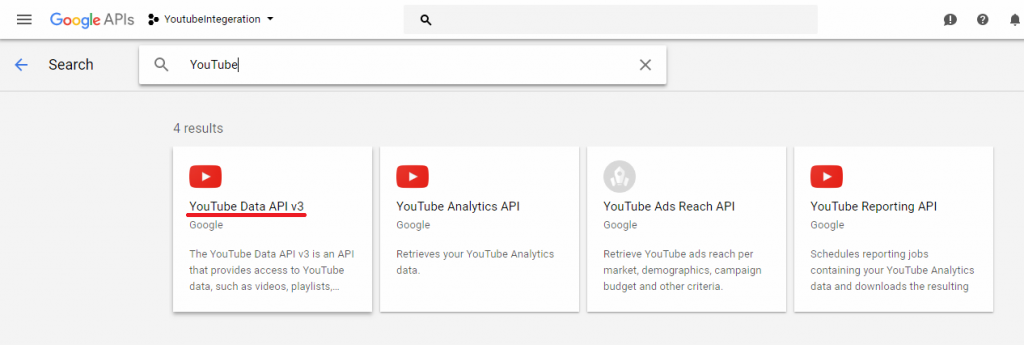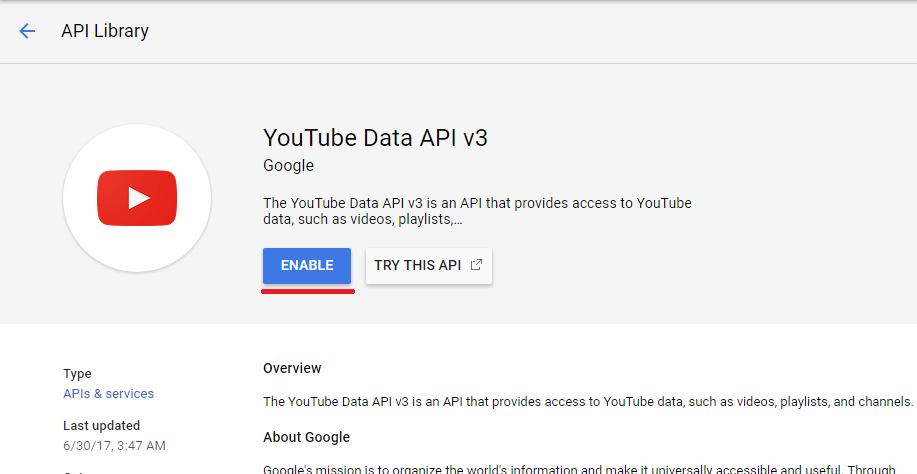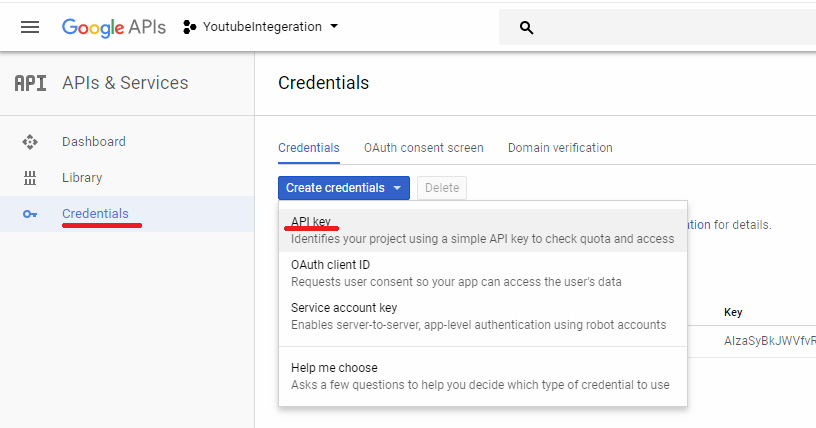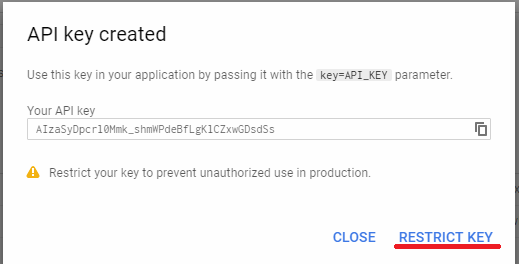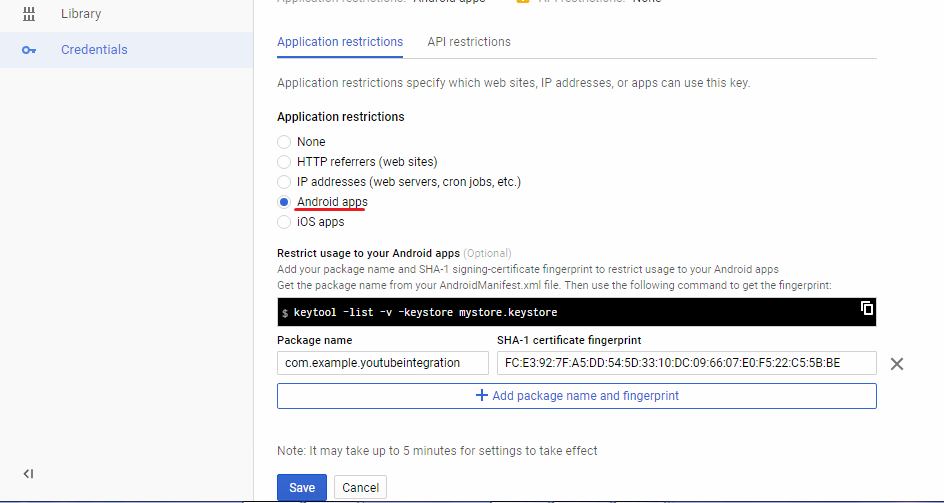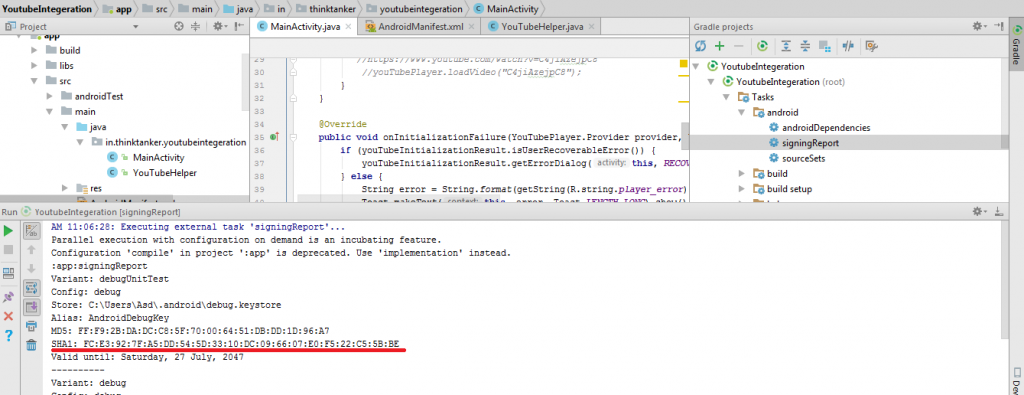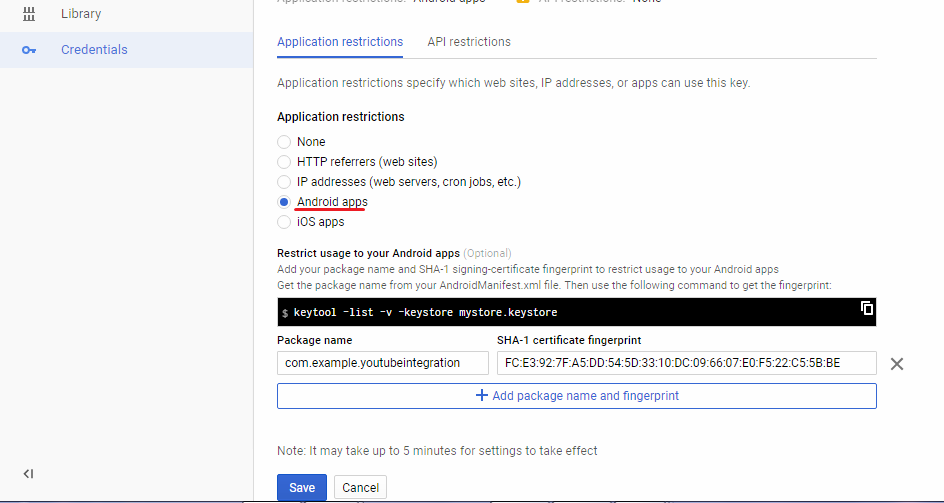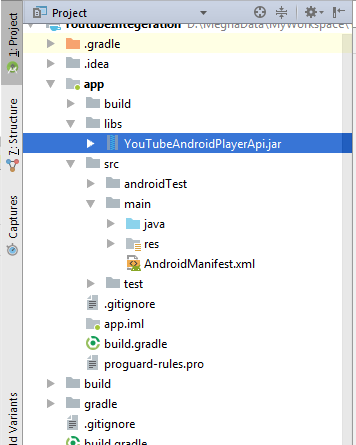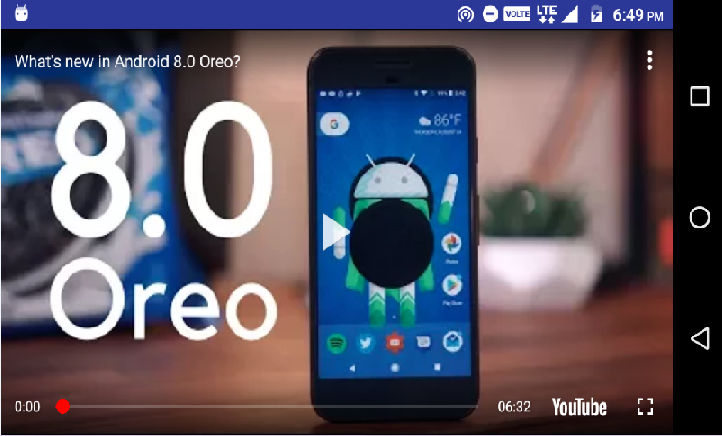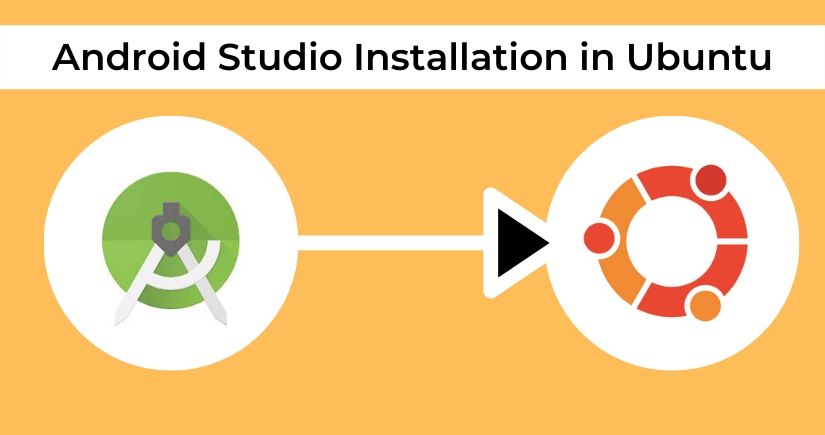YouTube Integration Steps in Android
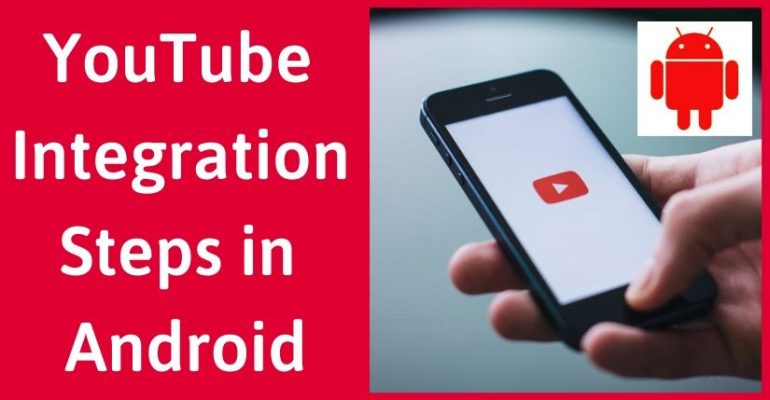
There are mainly 3 steps to integrate youtube in your Android application.
1) Register Your Application in Google Developer Console
2) Add Dependency for YouTube
3) Android Integration Part
1) Register Your Application in Google Developer Console
- Go to Google Developer Console
https://console.developers.google.com/projectselector/apis/dashboard
Login to Your Gmail account
After Login Create new Project in Google console
To Create a New Project Click on the Google Button, which redirects you to the following screen, now click to the ‘+’ button of the right most corner of the screen.
Create a new project, here I am using YoutubeIntegration as the project name
Click on Create button
- Enable YouTube Data API Library
To enable YouTube Library, Go to the Sidebar On the Left, Select Library option then search library YouTube data API and then Enable it.
To generate API Key, Select a Credential option from the sidebar and select Create Credential button and choose an API key
then Select Restrict Key
Select Android App from Radio buttons and Click Add Package name and fingerprint.
Write Package name of your project like com.example.youtube(inside your Manifiest.xml file copy your package name)
To Generate SHA-1 Key,
Go to Your Android Project Click on Gradle which appears on the right side of the project, click Refresh button
Expand (YourProjectName)root Folder Task -> android -> (double Click on)signingReport and Click Save Buttons
Now, you have your SHA-1 key, Paste into the SHA-1 certificate fingerprint
Click Save button
2) Add Dependency for YouTube
compile files(‘libs/YouTubeAndroidPlayerApi.jar’)
Download the YouTubeAndroidPlayerApi.jar File from the following link
https://developers.google.com/youtube/android/player/downloads/
After downloading the .jar file, paste it into libs folder
3) Android Integration Part
AndroidManifiest.xml
<uses-permission android:name="android.permission.INTERNET"/>
activity_main.xml
<com.google.android.youtube.player.YouTubePlayerView android:id="@+id/youtube_view" android:layout_width="match_parent" android:layout_height="wrap_content"/>
MainActivity.Java
public class MainActivity extends YouTubeBaseActivity implements YouTubePlayer.OnInitializedListener {
private static final int RECOVERY_REQUEST = 1;
private YouTubePlayerView youTubeView;
// You must extend the YouTubeBaseActivity otherwise it returns error unable to start activity
@Override
protected void onCreate(Bundle savedInstanceState) {
super.onCreate(savedInstanceState);
setContentView(R.layout.activity_main);
youTubeView = (YouTubePlayerView) findViewById(R.id.youtube_view);
youTubeView.initialize(this.getString(R.string.youtube_api_key), this);
}
// This method is called when initialization of the player success
@Override
public void onInitializationSuccess(YouTubePlayer.Provider provider, YouTubePlayer youTubePlayer, boolean b) {
if (!b) {
// this method loads the video and play the specified video
// in our code we used the method extractVideoIdFromUrl(String URL) which finds the youtube id from the URL
youTubePlayer.loadVideo(new YouTubeHelper().extractVideoIdFromUrl("https://www.youtube.com/watch?v=C4jiAzejpC8"));
}
}
// This method is called when initialization of the player fails
@Override
public void onInitializationFailure(YouTubePlayer.Provider provider, YouTubeInitializationResult youTubeInitializationResult) {
if (youTubeInitializationResult.isUserRecoverableError()) {
youTubeInitializationResult.getErrorDialog(this, RECOVERY_REQUEST).show();
} else {
String error = String.format(getString(R.string.player_error), youTubeInitializationResult.toString());
Toast.makeText(this, error, Toast.LENGTH_LONG).show();
}
}
@Override
protected void onActivityResult(int requestCode, int resultCode, Intent data) {
if (requestCode == RECOVERY_REQUEST) {
// Retry initialization if user performed a recovery action
getYouTubePlayerProvider().initialize(this.getString(R.string.youtube_api_key), this);
}
}
protected YouTubePlayer.Provider getYouTubePlayerProvider() {
return youTubeView;
}
}
YouTubeHelper.java
public class YouTubeHelper {
final String youTubeUrlRegEx = "^(https?)?(://)?(www.)?(m.)?((youtube.com)|(youtu.be))/";
final String[] videoIdRegex = { "\\?vi?=([^&]*)","watch\\?.*v=([^&]*)", "(?:embed|vi?)/([^/?]*)", "^([A-Za-z0-9\\-]*)"};
// using this method you can find out the youtube id from the url
public String extractVideoIdFromUrl(String url) {
String youTubeLinkWithoutProtocolAndDomain = youTubeLinkWithoutProtocolAndDomain(url);
for(String regex : videoIdRegex) {
Pattern compiledPattern = Pattern.compile(regex);
Matcher matcher = compiledPattern.matcher(youTubeLinkWithoutProtocolAndDomain);
if(matcher.find()){
return matcher.group(1);
}
}
return null;
}
private String youTubeLinkWithoutProtocolAndDomain(String url) {
Pattern compiledPattern = Pattern.compile(youTubeUrlRegEx);
Matcher matcher = compiledPattern.matcher(url);
if(matcher.find()){
return url.replace(matcher.group(), "");
}
return url;
}
}
Output:
Thank you.
Happy Coding.

